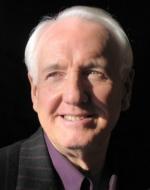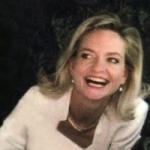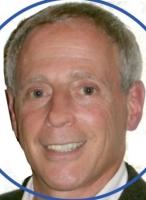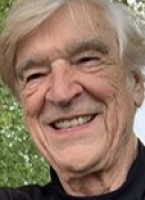Final Plenary
- In October in Santiago, Chile, the Chilean HR Association and the World Federation of People Management Associations is having a world Congress. 90 national HR associations and 600,000 HR professionals who want to hear what you have to say. So I think you need to be at the next congress.
- IBM sponsored a group of information technology It people joining HR people. Group recognizes that Ro is much more than organization. IBM committed to include some Ro education in several initiatives. There's great opportunities for us to collaborate in preparing for the future.
- Ro community and the Global Organization Design society seemed to blossom to me in this particular conference. The conference was an extremely rich professional program and we were exposed to excellent work and open sharing. We need your help to make the next twelve years as good as the last twelve years.
- Thank you, Don. Part of what I had some tears talking about Ken Crattock was gratitude to Elliot for his endless sharing. From that original memorial service for Elliot, we looked at each other and said, this is too good to die. The help you asked for help, help was outpouring.
- The other thing I want. And I hope Kate always goes out of the room. Can you get this on video, please? And we'll make a special copy for Kate. There may be other people I should thank individually. I have many friends here. Very thankful.
Speaker A I'd like to call on Sheila because the board had an initiative and I just wanted to give few minutes to explain that. Speaker B We thought we'd get some feedback from the chief executive of...
Transcript of the presentation video
NOTE: This transcript of the video was created by AI to enable Google's crawlers to search the video content. It may be expected to be only 96% accurate.
Speaker A I'd like to call on Sheila because the board had an initiative and I just wanted to give few minutes to explain that.
Speaker B We thought we'd get some feedback from the chief executive officers that were here. In particular, we wanted to know how geo could meet the needs of CEOs going forward. So we had a quick brainstorm session at lunchtime yesterday and a productive session. Got a whole lot of information from them. And we just this morning sorted it out in an Ishikawa diagram. And those are the key issues. Geo networking models and tools, sustainability, Ro evidence and dealing with the Ro paradigm. What we will do with these, these are a draft. They're just a first pass at thoughts. We'll send them out to the CEOs who attended. If you are still here and you want a hard copy, cincinsi over there has one to pass out to you when you leave these need working on, they're still just early thoughts about issues. They need to be reframed, framed into what are the desired outcomes and then translated into what actions can we put together to meet your needs? In addition to that, Ken will be preparing a feedback sheet for all of you. As participants, we'd very much value your feedback, not just on the conference, but how geo can meet your needs going forward. Thank you.
Speaker A On Paul Juniper as a leader in the HR community to kind of comment on his learnings. First time to one of our conferences on the themes from the HR track.
Speaker C So I was actually at the conference four years ago, and I wanted to talk a little bit about what I see that's different and what's different about the field this time. When I was here four years ago, I saw a group of individual consultants talking with each other and talking about the past. And one of the things I noticed this time is I see a community talking to itself and starting to talk outside. And I think that's such a big change in what you're doing. So to me, just as an outsider, that's what it felt like to me. The other thing is there were a lot of people here this time that weren't here last time, and isn't that a great thing? Also, a lot of those people that were here this time that weren't here last time are young people, and you may have noticed that. Well, I think that's important too, because it suggests something about your outreach and who's listening and who you're talking to. Sandy Cordello, I know you're there. I'm going to send her you out because you're doing your best to teach me about Ro. But we're also taking it across Canada to the community. You've been to five cities now, we've got six more to send you to. And I promise you, after you go to Fort McMurray, we'll let you go to the Caribbean. Okay? So the HR stream, they were full in fact, the one couple that I were in, we had to bring chairs in. You created more sessions this afternoon. So, Ken, I think the group is telling you something here. So I'd also like to mention that in October in Santiago, Chile, the Chilean HR Association and the World Federation of People Management Associations is having a world Congress. The World Federation represents. Now, and I checked my facts on this in the last hour, 90 national HR associations and 600,000 HR professionals who want to hear what you have to say. So I think you need to be at the next congress, because you're not at this one, as far as I know. And you weren't in Melbourne two years ago, you weren't in Montreal four years ago, you weren't in London six years ago. So if you want to reach the HR community, there is a way to do that. And I think we're showing in what we do that there's a lot of people who are interested. Ro is now a fundamental part of our advanced HR certificate at our university, and I think that's incredibly important. We're going to put it in some of our new programs like our building Trust in the workplace, linking HR strategy and business strategy, strategic workforce planning. Those are the new things that we're introducing, and we'll try to make sure that Ro is a part of that. And I wouldn't have been able to do this without Ken introducing me low those many years ago when I was a member of the board of directors of an HR association working with Ken. And within five years, we doubled our membership. Now, he didn't start off telling me what he was doing, but I had to learn about that over time. But Ken's influence continues in the way that that organization is structured and the way it runs and its national success. So, Ken, this stuff works, as you well know. And so I thank you. And I thank you for putting together what you're doing and the way that you're talking to each other now. It just sounds different to me, and that's how I feel about it.
Speaker A Thank you for those kind words. So thank you very much. Paul, there's IBM sponsored a group, several seven people here, and we wanted to ask Jerry Luffman if he would say a few words about his experience in our community and maybe summarizing some of the things you heard your group say.
Speaker C Sure.
Speaker D Thank you. As one of the younger members who participating in this program, delighted to be here. It's interesting to have a group of information technology It people joining HR people as came out from our previous breakout session. It's the Rodney Dangerfields of the enterprise, working together to try and leverage their perspectives of the world, to try and make a difference in companies. But the seven of us were delighted to be here, and clearly every one of us recognized the merits of Ro and what Ro is doing and what it could be doing and the approach that it's making available is certainly one that we look at as one that we've got to carry the message forward. And we will. But coming from a fresh and different perspective, a couple of things that we recognized right off the bat was that Ro is much more than organization. And I think we are constraining ourselves if we just focus it to organization and don't expand its impact throughout the organization and other things both internally to the organization, as well as the relationships the organization has with its strategic partners. In addition, coming from an It perspective, a different perspective than most of you we recognize, and we talked about this one of the sessions also earlier in the week, the future and what's going on to change how and what we do. And I think we all recognize some of the changes that are going on in the business world, but certainly the changes that information technology is bringing to the business world is going to provide profound changes to the organization. And I think having the It folks and HR folks working together here, we could really not only identify what those changes are, but prepare for those changes. Because I think without having the requisite organizational considerations well in place and the models in place to help prepare the organization, some of these changes are not going to happen as smoothly or as rapidly as they need to. And clearly there's great opportunities for us to collaborate in preparing for the future. Again, the model of Ro is one that, again, we all agree could be very, very valuable in ensuring the success and last but not least, in trying to carry the message forward. One of the primary reasons the team of seven of us were here was in trying to identify education opportunities to the It world about Ro and organizational considerations. So we are committed to include some Ro education in several initiatives that we have underway, least of which are how to identify where organizations within It, such as the data organization or the analytics organization, ought to report and taking a look at It as a whole and where it ought to report within an enterprise. And last but not least, I'd be remiss if we didn't also offer our skills in being able to educate you as partners in how to leverage it, least of which is analytics. But I suspect that there are lots of things that we can help you understand better in leveraging technologies like social networking, mobile, the analytics that we talked about just among a few. So we are delighted to be part of the team. We are delighted to have had the opportunity to meet with you. We hope we didn't turn you off from our geekness, but we felt very welcome. And clearly, as I said, we see the merits of what you're doing and are delighted to collaborate with you as we all try and move forward. So thank you very much for having us.
Speaker A Thanks, Jerry. And because of circumstances, there were a couple of initiatives that were not finished before the conference. One is we had the very admirable objective of a mini book. We have the COVID the table of contents, we have two articles. But because of circumstances, we weren't able to finish it to engage a larger community in it to come with the questions. But I hope we have the agreement and involvement of the group that we can work to continue that book. It's supposed to be a mini book of about 70 pages with some nice graphics that would be educational to that community. The other thing, when I said that to the group that they had to do the elearning in order to come, steve Miller of IBM says, well, as Jerry said, we'd like to provide some educational opportunities for your group. Would they be willing to do an equal amount of reading for the conference? Now, because of circumstances and slippage, I have material, we're putting a special page on the website about our relationship and we will post the materials. And beyond the conference group, we will make it available to everyone, educating our field in design to more aspects of this. So I just wanted to say unfinished business, and I hope we can work together to finish those two things. Now, lastly, I'd like to call on Don Folk to give some reflections about the meeting.
Speaker E So I just had a handful of things here that I thought were really important for the Ro community and the Global Organization Design society that seemed to blossom to me in this particular conference. And the first and most notable to me was the personal contact that I felt with a lot of people here and I saw happening every day since it started, and direct, open, warm engagement of each other. That really was the top of my list by a long way. I also thought that the conference was an extremely rich professional program and we were exposed to excellent work and open sharing by people who've been working professionally in this field. Really quite remarkable. And it also seemed to me that I was seeing a lot of relationships being built for working together in a lot of different ways going forward among individuals, and in particular in general circumstances. The other thing I think is clear in this group that was here now, we've lost a few of them to early flights, but we have a whole new, younger generation of leaders showing their interest in what we're doing. And this to me, just makes it feel like the future's got an open track here. Now, just as a matter of perspective, it's a dozen years since the death of Elliot Jacks, and we've been blessed to have a remarkable social entrepreneur who was willing to dedicate himself to pull this all together and to create the space for this to happen. And I just like to say that Ken Shepard, you've just done a fantastic job for us.
Speaker A Thank you.
Speaker C It.
Speaker A Thank you very much.
Speaker E I think heroic is the word now. Looking forward to the next twelve years.
Speaker C Um.
Speaker E I was thinking about this, and those of you who are in the entrepreneurial workshop the other day will, will recognize the phrase adolescent. And I think that's where we are as a society. We're in the adolescent stage, and the danger here is getting stuck in the founder's trap. And so with all our gratitude to Ken looking forward, we have to find a way that doesn't depend solely on him to carry this momentum forward. And I just want to say we need your help to make the next twelve years as good as the last twelve years. And I've enjoyed being with you all, and I hope to see you next time.
Speaker A Now, this is it. Thank you, Don. And I want to say that part of what I had some tears talking about Ken Crattock was gratitude to him for what he's done. It was gratitude to Elliot for his endless sharing. And somehow that inspired us when we formed, rather than to think about a trade association where we're trying to sell stuff, it made us into a collaborative of really sharing materials. And from that original memorial service for Elliot, we looked at each other and said, this is too good to die. We will make it live. We sat around the table, a number of us in the room, and there was sharing from that point. And we said, we will create an atmosphere of sharing, a non commercial attitude. People come, they will not be hassled. Consultants can bring their clients without fear that another consultant will sidle up and hand out cards and follow up. That will not happen. So that we can trust each other. And I think Don is right on that. In twelve years, we've met each other a number of times, and there is enormous trust. And I might say as I ask people sometimes I asked too late when I got ill, for help, but I will say the help you asked for help, help was outpouring. Not only did the board and I thank all members of the board for quickening the pace, because they all work hard and they don't have a lot of time, but no one said no to anything. So I want to say people are helping. And those of the rest of you who I was a little late in communicating with were patient and understanding with goodwill, and I think it was enormous outflowing. So I just have gratitude to Ken Craddock for helping us get started, to the founding group, to the board, to those of you who presented and participated. I think that's what made the quality that we have. And I'm gratitude there. The other thing I want. And I hope Kate always goes out of the room. I think she gets embarrassed. Where is Kate? I knew she left the room. Can you get this on video, please? And we'll make a special copy for Kate. So I discovered Kate and she is a lady of amazing ability. She solves problems. She is one of the youngest generation that knows technology, but also she's a volleyball star, coaches, plays championship levels, rides bike everywhere, carries on two jobs and is always on time and did everything with enormous skill and care. So can you record your applause for the video so that she can see this later? And thanks to Jesse and Nicole, who are going to do this with us. I'm sure you're going to help us take the message of the world. There may be other people I should thank individually. I know I've thanked Ahmet before for the new website design which brings us alive and modern. There may be others I'm missing. I have many friends here. Very thankful.
Major organizations and consulting firms that provide Requisite Organization-based services









